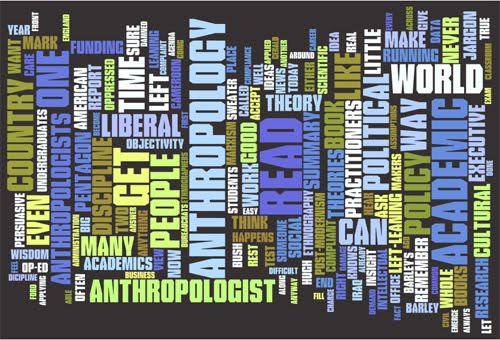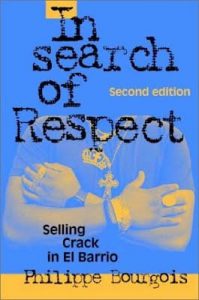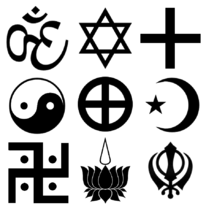Before we look at the Anthropology of Business, we need to address the Business of Anthropology.
Anthropology as a discipline has often raised curiousity. If you were asked to define what anthropology is, one, if not all of the following answers usually emerges: ‘I don’t know’, ‘how do you spell it’, or ‘is it something to do with ‘old bones and stones!’. The pleasure of that job is related to archaeologists, with whom anthropologists collaborate, but researching fossils is not all we do.
The etymology of Anthropology is derived from the Greek word anthrōpos, “man”, understood to mean ‘humankind’ or humanity, and logia(-λογία) “discourse” or “study.” The definition of anthropology is therefore the cross cultural study of human behaviour, of which there are 4 main branches: biological anthropology which explores the physical aspect of human anatomy and primate evolution, archaelogical anthropologists that investigate how societies lived in the past (bones and stones), lingustic anthropology that addresses the social evolution and cultural comparison of languages including endangered orality, and the most popular pathway, Social anthropology (Cultural Anthropology in USA), which has the greatest interdisciplinary overlap with psychology, religious education and sociology. All anthropology branches ask big philosphical questions such as ” what makes us human?” or “why humans do what they do?” (but don’t know whay they do it), but our topical and regional research guides us in different ways.
Social Anthropologists compare the similarities and differences between societies and identify the way people interact through the practise of everyday life. This pattern forms part of our cultural heritage and maybe expressed through the social or religious use of tangible buildings or intangible heritage, the traditional beliefs, narratives and ceremonies relating to music, dance, song, arts and crafts. In order to contextualise the foundation of the discipline, classical topics include the birth of anthropology during 19thc evolutionary theory, the impact of colonialism, to the cross cultural meaning of kinship, gender and sexuality, the role of traditional ethnographic fieldwork, structural anthropology, the relationship between language and culture, to the symbolic meaning of body adornment and use of ritual crafts in societies.
In this way anthropologists make the strange familiar and the familiar strange.
Today, however, there are increasing sub-disciplines in anthropology including forensic anthropology (CSI, Crime, blood and bones) to visual anthropology which raises questions relating to a universal definition or an indigenous meaning of beauty and art, to the relationship between people and objects in material culture, and the role and importance of ethnographic museums. Other exciting research areas include the cross cultural meaning of space within the built environment, cultural heritage and relationship between people, place and the cultural landscape. Current trends relate to the anthropology of food which questions why we eat what we eat, to the impact of digital media on human behaviour (“Why We Post? current research at UCL) and anthropology of the senses. Thus the anthropological exploration into the experience and expression of human culture is everywhere. Comparative research is no longer only overseas amongst the primitive exotic, but locally within our multi cultural communities, from Camden to Cumbria. If you want to know more, read this key ethnographic text on anthropological fieldwork amongst crack cocaine dealers in East Harlem, NewYork, it’s most illuminating.
Despite this rich cultural data, as we experience a global time-space compression, our relationship with the built environment is rapidily changing. As people migrate, we are now faced with the combination of rapid urbanisation, social media and increasing cultural diversity in the UK. For many ethnic groups, their traditional cultural beliefs associated with food, dance, the arts are reinforced, readapted and reinvented through the transmission of tradition. People eat as a way of reconnecting with their cultural heritage, and their newly defined identity through cultural carnivals, ceremonies and festivals. That’s why we can indulge in a European croissant and Colombian coffee for breakfast, Thai or Italian pasta for lunch and dine out on a South Indian curry or eat a traditional British roast on Sunday! However, for many diaspora communities the sheer challenge to adapt to a new society has resulted in a decline in traditional customs and beliefs. Linguistic dialects are disappearing, songs aren’t sung and inherited building crafts and ritual practices associated with cultural spaces have diminished. I therefore believe, now more than ever, anthropologists are required to analyse our wide ranging cultural and intangible heritage in streets, rural villages and cities, regionally and nationally in the UK. It is critical to identify and protect the potential loss or reduction of cultural diversity practices across all professional and social backgrounds. This is particularly for younger generations in order to gain a deeper incite into the importance and relevance of cultural heritage today. Maybe that is why there is a surge in intergenerational oral histories, not only to record individual and collective memories within a community but equally in business, in order to understand the past in the present for the future.
The training anthropology provides is an excellent platform upon which to build critical theoretical analysis of a society, but we also have a unique transferable skill set which involves participant observation, ethnographic fieldwork and concise research reports, where we observe and work with people in a variety of different sectors from design companies to corporate social responsibility. This may include collaboration on local heritage community projects to provide residents with a deeper and more holistic understanding of the wide ranging ethnicities in society; or the meaning of cultural diversity policies in business due to increased globalisation, and how this corporate strategy fits into our wider social, economic and political society today. So what do the words anthropology, cultural heritage and multi-culturalism in their broadest terms mean to you now? How are these culture practices embedded and discussed within your organisation or community project? How do you raise awareness of cultural diversity or apply cross cultural perspectives to your corporate business and employees in order to change attitudes and beliefs?
Hopefully this post has raised some questions and provided a better understanding of the role anthropology plays in society today. If you wish to explore this further on a professional level, I deliver anthropology courses as highlighted on this website and regular monthly seminar talks on the relationship between Anthropology and Business at the City Business Library, London.
7 Cross Cultural Tips For Your Global Business
“There are many anthropologies, but fieldwork in its varied shapes and forms is central to all anthropologists.
In order to provide an understanding of other peoples cultural behaviour requires first hand research in intercultural skills and ethnographic fieldwork. Do you need to create an awareness between global affairs and localised thought in the work place, how people perceive other cultures or direct experience of the way different groups use products in the home or community? If so, Social Anthropologist Yasmin Hales will discuss the importance of ethnographic fieldwork and participant observation for your business, and how a comparative analysis of different behaviour patterns from different cultural backgrounds is just what you need”
“Very interesting talk, informative and enjoyable discussion points”
“Clear information, very dynamic presentation”
“Excellent to share business opinions with people who have different backgrounds”
“Very different and engaging discussion for participants, good food for thought”
“A practical and engaging seminar which has huge relevance to understand cultural diversity in society today”
March -July 2013
Anthropology Students. If you are thinking about enrolling on an anthropology degree or modular course, I would encourage you to attend any anthropology workshops, become an intern or do some voluntary work in a related organisation (including mine!). A good start is the Royal Anthropological Institutes website www.rai.org.uk , or for a quick, useful overview see Wikipedia http://en.wikipedia.org/wiki/Anthropology.
Alternatively you can always contact me at Talking Streets for potential research experience related to the anthropology of space and cultural heritage, transcribing oral histories, classifying photography, updating social media, exhibition assistance or general anthropological admin. These are interesting opportunities that will provide an invaluable incite and educational enrichment to your personal or professional pathway in all things anthropological.
Interested? Contact Yasmin info@talkingstreets.co.uk
Copyright © 2013 Yasmin-Hales. All Rights Reserved






Recent Comments